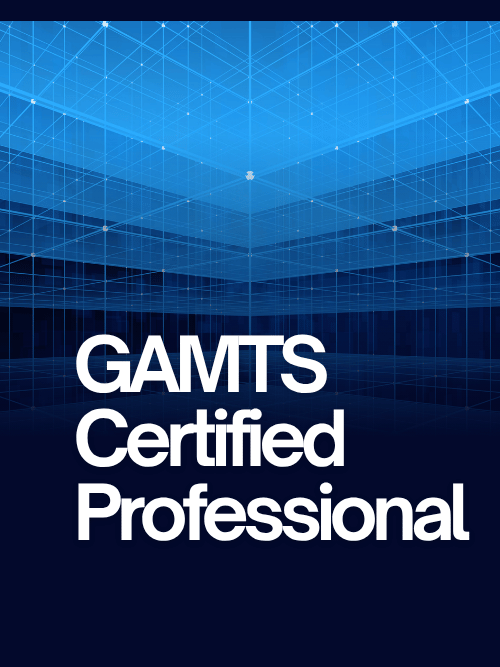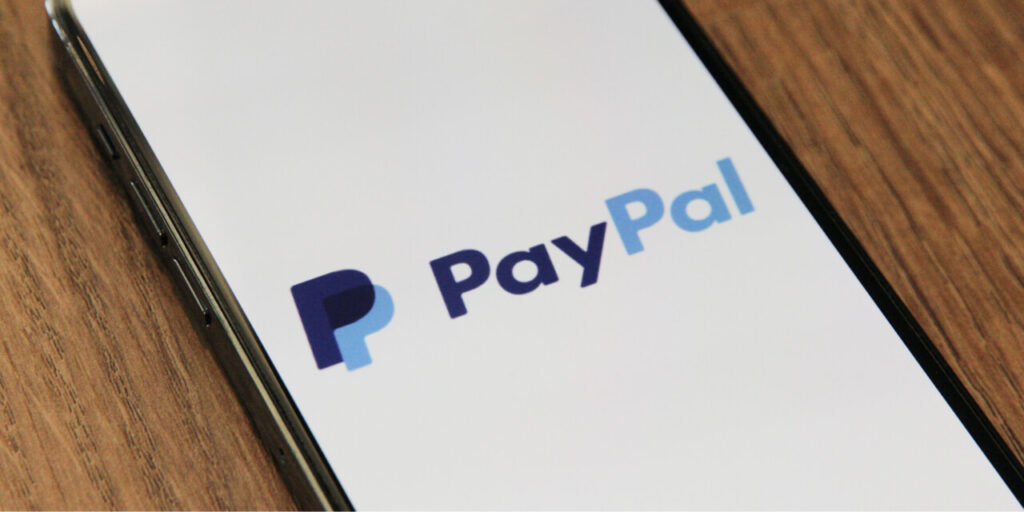GAMTS Certified AI-Driven Project Manager (GMAP)
Schedule Exam Lead AI Projects with Confidence and Strategic Vision
Overview
What is GMAP Cerificate
The GAMTS Certified AI-Driven Project Manager (GMAP) is a premier, lifetime-valid credential designed for project managers, team leaders, and strategic professionals who lead AI-powered projects and digital transformation initiatives. As an independent, vendor-neutral global certification authority, GAMTS validates your expertise in integrating artificial intelligence into project management workflows—from automation and decision support to risk prediction and resource optimization.
This certification positions you as a forward-thinking leader capable of leveraging AI tools to deliver projects faster, smarter, and with greater business impact while navigating the unique challenges of AI implementation, ethics, and organizational change.
Curriculum
Complete Study Syllabus
1.1 Introduction & Purpose of AI in Project Management
Purpose and importance of AI integration in project management
Transformation of project management through AI
AI's role in addressing project management challenges
How AI complements human project managers
Business case for AI adoption in project management
Strategic benefits and competitive advantages
1.2 Definition & Types of Artificial Intelligence
Definition and core concepts of AI
Narrow AI (Weak AI): capabilities, limitations, applications
General AI (Strong AI): theoretical concepts and future implications
Super Intelligent AI: advanced concepts and ethical concerns
Machine Learning (ML) vs. Deep Learning
Neural Networks and how they function
Classification of AI by learning techniques
1.3 AI Fundamentals for Project Managers
Algorithms and their role in AI systems
How AI processes data to make decisions
Machine Learning mechanisms and continuous improvement
Pattern recognition and predictive modeling
Real-world AI applications across industries
AI trends and emerging tools
1.4 Importance of Project Management
Core principles of effective project management
Project scope, time, cost, and quality management
Stakeholder expectations and communication
Resource allocation and utilization
Risk management fundamentals
Project lifecycle phases
2.1 Task & Workflow Automation
AI-driven task management tools and capabilities
Automated task assignment based on skills and availability
Workflow optimization and bottleneck identification
Task prioritization using AI algorithms
Real-time progress tracking and alerts
Automation of repetitive administrative tasks
2.2 Scheduling & Time Management Automation
AI scheduling algorithms and optimization
Real-time schedule adjustments based on project progress
Resource availability analysis and integration
Task dependency management and critical path analysis
Deadline prediction and delay prevention
Historical data analysis for accurate time estimation
2.3 Progress Tracking & Reporting Automation
Automated progress report generation
Real-time status updates and notifications
Documentation automation and management
Alert systems for overdue tasks and bottlenecks
Performance metrics aggregation
Automated stakeholder communications
2.4 Administrative Task Automation
Email and documentation management
Meeting scheduling and calendar optimization
Workflow categorization and information retrieval
Data organization and tagging systems
Inter-team communication automation
Routine administrative process streamlining
2.5 Collaboration Tools & Communication Support
AI-powered real-time collaboration platforms
Automatic language translation using NLP (Natural Language Processing)
Instant messaging integration and prioritization
Automatic meeting transcriptions and summaries
Multi-language support for global teams
Communication analytics and team insights
3.1 AI Decision Support Systems
Real-time data consolidation from multiple sources
Pattern recognition in project data
Predictive decision recommendations
Data-driven vs. intuitive decision-making
Historical project data analysis for informed decisions
Bias reduction in decision-making
3.2 Predictive Analytics in Project Management
Predictive forecasting for project timelines
Cost prediction and budget management
Risk prediction and early warning systems
Resource demand forecasting
Delay prediction and prevention strategies
What-if scenario analysis
3.3 Real-Time Analytics & Dashboards
AI dashboards for project performance monitoring
Key Performance Indicator (KPI) tracking
Visual data representation and heat maps
Comparative analytics and trend identification
Critical metric highlighting and alerts
Real-time decision support for managers
3.4 Data-Driven Decision-Making Process
Data collection and preparation for decisions
Quality assurance in data-driven decisions
Decision documentation and traceability
Risk assessment using data analytics
Stakeholder communication with data insights
Continuous improvement through feedback loops
4.1 AI-Powered Resource Allocation
Automated resource assignment to tasks
Skill-based resource matching
Availability and workload analysis
Team member expertise assessment
Bottleneck identification and resolution
Load balancing across projects
4.2 Resource Optimization Techniques
Optimal utilization of human resources
Financial resource allocation
Material resource management
Multi-project resource management
Resource pooling and sharing strategies
Efficiency improvements through optimization
4.3 Predictive Resource Planning
Forecasting future resource needs
Historical project data analysis for planning
Seasonal resource allocation patterns
Long-term resource strategy development
Resource shortage prevention
Budget optimization and cost control
4.4 Reallocation & Dynamic Resource Management
Real-time resource reallocation
Response to project changes and delays
Task reassignment protocols
Capacity utilization adjustment
Crisis resource management
Flexibility in resource deployment
5.1 Traditional vs. AI-Powered Risk Management
Traditional risk identification methods
Human bias in risk assessment
AI-driven risk detection and analysis
Real-time risk monitoring
Advantages of AI over manual risk management
Integration of human judgment with AI insights
5.2 Risk Identification & Analysis
Risk taxonomy for project management
Identification of project-specific risks
Risk probability and impact assessment
Correlation analysis between risks
Root cause analysis using AI
Risk pattern recognition from historical data
5.3 Predictive Risk Management
Machine learning algorithms for risk prediction
Early warning systems for emerging risks
Risk escalation prediction
Resource consumption risks
Budget overrun prediction
Schedule delay forecasting
5.4 Risk Mitigation & Response Planning
AI-recommended mitigation strategies
Contingency planning automation
Response plan development
Risk prioritization for action
Proactive vs. reactive risk management
Risk monitoring and tracking
5.5 Real-Time Risk Monitoring
Continuous risk assessment
Alert systems for critical risks
Status update integration
Decision support for risk response
Automated corrective action recommendations
6.1 AI Implementation Planning
Organizational readiness assessment
AI adoption strategy development
Technology infrastructure requirements
Budget and resource planning
Phased implementation approach
Stakeholder alignment and buy-in
6.2 Data Management & Preparation
Data collection from projects
Data quality assurance and cleaning
Data integration from multiple sources
Historical data organization
Data storage and accessibility
Data governance frameworks
6.3 AI Model Training & Testing
Model selection and customization
Training data preparation
Validation and testing protocols
Performance metrics and KPIs
Iterative model improvement
Accuracy and effectiveness verification
6.4 Deployment & Integration
System integration with existing tools
Workflow modification and adaptation
Team member training and onboarding
Monitoring and performance tracking
Support and maintenance processes
Continuous optimization
7.1 Overcoming Resistance to Change
Identifying sources of resistance
Stakeholder engagement strategies
Communication planning
Addressing concerns and fears
Change agent roles and responsibilities
Managing resistance throughout implementation
7.2 Organizational Change Management
Change management frameworks
Process redesign for AI integration
Cultural transformation
Skill development and training
Performance expectations adjustment
Success metrics for change
7.3 Training & Capability Development
Project manager skill requirements for AI
Training program design
Competency assessment and development
Continuous learning initiatives
AI literacy for all team members
Knowledge transfer strategies
7.4 Organizational Culture & Adoption
Building AI-ready organizational culture
Leadership support and sponsorship
Employee engagement strategies
Quick wins and momentum building
Feedback loops and continuous improvement
Long-term adoption sustainability
8.1 Data Privacy in AI Systems
Privacy regulations and compliance (GDPR, CCPA, local laws)
Data protection requirements
Personal information handling
Data retention policies
User consent and transparency
Privacy by design principles
8.2 Security Considerations
Data security measures and controls
Cybersecurity in AI systems
Access controls and authentication
Encryption requirements
Breach prevention and response
Security audit and compliance
8.3 Ethical Considerations in AI
Bias in AI systems and mitigation
Fairness and transparency
Accountability in AI decisions
Ethical decision-making frameworks
Responsible AI practices
Stakeholder trust and confidence
8.4 Legal & Compliance Issues
Contractual obligations and compliance
Regulatory requirements
Audit trails and documentation
Governance structures
Risk mitigation and liability
Legal framework alignment
9.1 Technical Challenges
Data quality and availability issues
Integration complexity with existing systems
Scalability concerns
Algorithm performance limitations
Model accuracy challenges
Technology infrastructure gaps
9.2 Skills & Competency Gaps
Shortage of AI expertise
Learning curve for project managers
Training resource limitations
Knowledge transfer challenges
Retention of AI-skilled personnel
Continuous upskilling requirements
9.3 Cost, ROI & Resource Constraints
Implementation costs and budget constraints
ROI calculation and measurement
Long-term vs. short-term investment
Resource availability limitations
Cost-benefit analysis
Justification to stakeholders
9.4 Organizational & Cultural Challenges
Resistance to technological change
Organizational silos and integration
Legacy system compatibility
Workflow disruption concerns
Legacy mindset change
Change fatigue management
9.5 Future Trends & Emerging Technologies
Hybrid AI-Agile project management models
Advanced AI capabilities and ML innovations
Emerging tools and platforms
Industry-specific AI applications
Quantum computing implications
Next-generation AI forecasting and decision-making
10.1 AI in Construction Project Management
Construction-specific challenges
Resource and equipment management
Schedule optimization in construction
Risk management in construction
Cost control and budget optimization
Case studies and best practices
10.2 AI in Healthcare Project Management
Healthcare project complexity
Resource allocation in healthcare
Regulatory compliance requirements
Risk management in clinical settings
Data privacy in healthcare
Case studies and applications
10.3 AI in IT Project Management
Software development project challenges
Agile integration with AI
Technology stack optimization
Performance metrics and KPIs
Rapid deployment cycles
Case studies and innovations
10.4 AI in Manufacturing Project Management
Supply chain optimization
Production scheduling
Quality control integration
Resource utilization
Predictive maintenance planning
Case studies and implementations
11.1 AI Implementation Scenarios
Phased implementation challenges
Resource allocation decision-making
Risk mitigation in real projects
Change management scenarios
Multi-project portfolio management
Crisis resolution scenarios
11.2 Decision-Making Scenarios
Data-driven decision challenges
Balancing AI recommendations with human judgment
Stakeholder conflict resolution
Competing priorities management
Budget trade-off decisions
Schedule vs. quality trade-offs
11.3 Real-World Case Studies
Successful AI adoption stories
Industry-specific implementations
Lessons learned from failures
ROI measurement and validation
Organizational transformation examples
Continuous improvement initiatives
11.4 Strategic & Leadership Scenarios
AI strategy alignment with business goals
Leadership decision-making with AI insights
Organizational vision and AI integration
Innovation and competitive advantage
Stakeholder communication strategies
Sustainability and growth
Continuous Updates: Curriculum and study guide updated annually to meet market changes
Audience
Target Audience
Project managers overseeing AI or technology-driven initiatives (5+ years experience)
Program managers leading digital transformation and automation projects
IT and technology project leaders implementing AI solutions
PMO directors and portfolio managers integrating AI across projects
Product managers working on AI-powered products and services
Business strategists and consultants advising on AI adoption
Agile coaches and scrum masters in AI/ML development environments
Change managers facilitating AI-driven organizational transformation
Exam Pattern
Process
To maintain the integrity and quality of GAMTS certifications, purchasing the Official Study Guide + Exam Voucher Bundle is mandatory.
-
Step 1
Purchase Bundle
Buy the Official GMCS Study Guide + Exam Voucher Bundle on this page. Instant download of study materials and exam voucher to your GAMTS account. -
Step 2
Prepare & Write Exam
Use the comprehensive guide to prepare at your own pace (no training sessions required). Complete the 3-hour online exam from any location with secure proctoring. -
Step 3
Receive Results & Certificate
Upon passing, receive your GMCS certificate instantly via email.
Ready to Certify?
Apply for certification Have Questions? Contact our certification advisors at certifications@gamts.org.
Insights/Resources
Expert insight and analysis on the latest trends.
3 Common Mistakes in Cyber Risk Quantification (And How to Avoid Them)
How a CCRS Certified Professional Reduced Cyber Insurance Premiums by 35%
PayPal launches PYUSD stablecoin for payments and transfers
Revolutionizing the Future of Financial Services
Testimonial
“The GMCS credential empowered me to lead global cloud security transformations. The vendor-neutral approach makes it stand out internationally.”
— Fatima Ahmed, Cloud Security Director, UAE
Career Acceleration: Secure promotions, specialized roles, and leadership opportunities
Benefits & Industry Value
Independent & Vendor-Neutral
We certify your skills, not products. GAMTS has no affiliation with any technology vendor, ensuring impartial, objective standards that remain valuable across all platforms and technologies.
Lifetime Validity – No Renewal Fees
Your GAMTS certification is valid for life. No recurring costs, no expiration dates, no mandatory renewals. Your achievement is recognized forever.
Global Recognition – 50+ Countries
GAMTS certifications are trusted by enterprises, governments, and regulators worldwide. Your credential opens doors across continents.
Rigorous, Transparent Standards
Our certification standards are developed by subject matter experts, industry bodies, and global frameworks (NIST, ISO, IEEE). Integrity is non-negotiable.
Self-Paced, Flexible Learning
No mandatory training. No fixed schedules. Study at your own pace using our comprehensive official materials. Exam available 24/7, whenever you're ready.
Affordable, Transparent Pricing
One-time bundle purchase covers study guide and unlimited exam attempts within 12 months. No hidden fees, no surprise costs, no renewal traps.
Career Advancement & Higher Compensation
GAMTS-certified professionals report average salary increases of 35% and career advancement to leadership roles within 12-24 months.
Nonprofit Mission – Your Success Matters
GAMTS is nonprofit. We reinvest all proceeds into better standards, research, and candidate support—not shareholder profits. Your certification funds excellence.
Join 10,000+ certified professionals committed to ethical practice, continuous learning, and industry excellence. Network, collaborate, grow.
FAQs About GMCS Certificate
5+ years in project management or related technology leadership is recommended.
GMAP is valid for life—no expiration, no renewal fees.
Yes. GMAP is trusted by organizations in 50+ countries
Completely vendor-neutral. Focuses on AI strategy and integration applicable across all platforms.
Yes. Trusted by major employers and government regulators globally.






